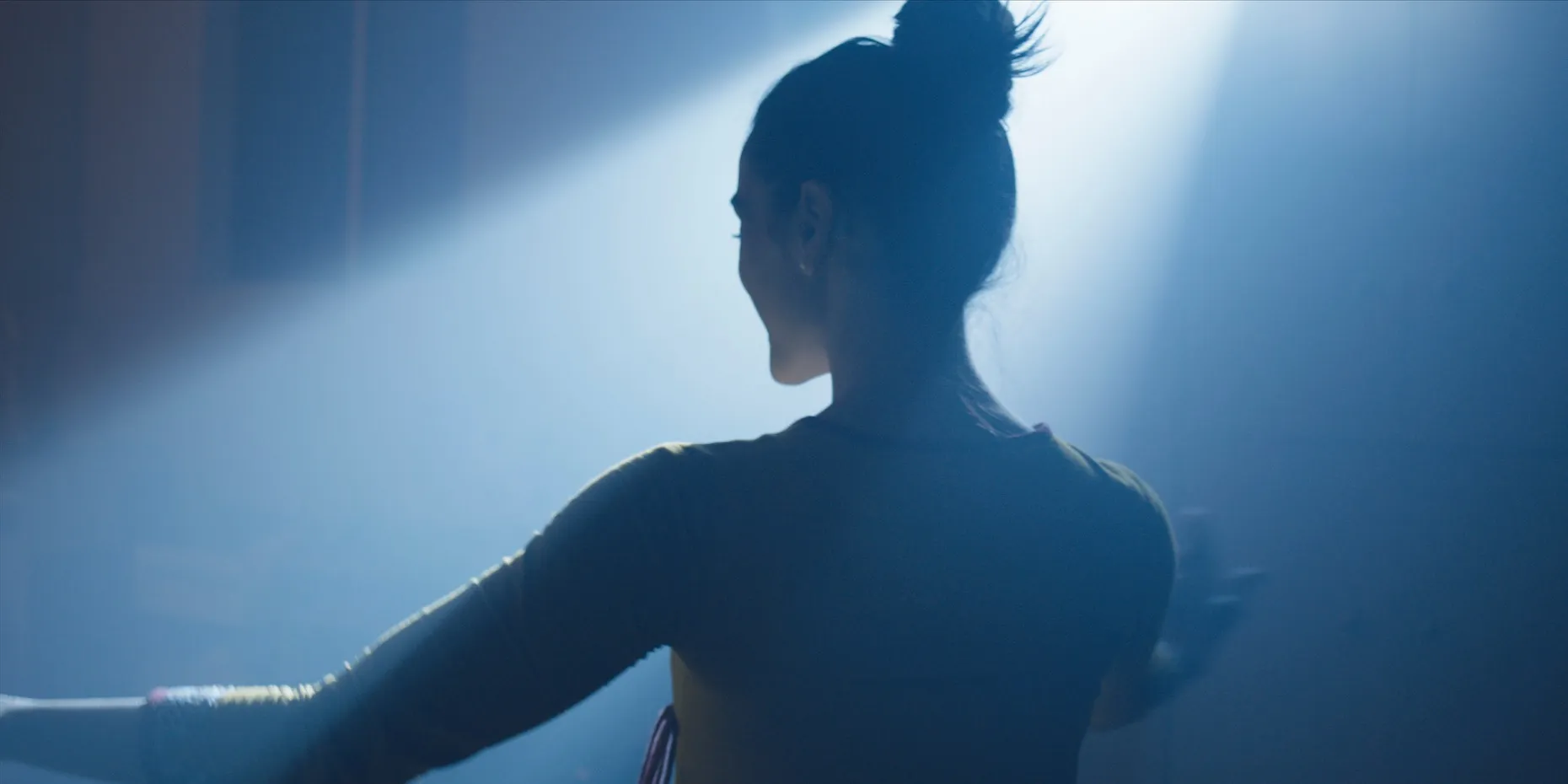Breaking Through the Silence: Radha Mehta’s DOSH Uplifts Overlooked Voices
Film
A seismic shift rumbles beneath the surface of silence. Director Radha Mehta tunes her ear to these subtle vibrations, amplifying muffled cries into a defiant anthem through film. Her latest short DOSH, selected for the Slamdance Film Festival, deploys sight and sound to crack cultural walls, ushering in whispers that crescendo into conversation. Like tectonic plates under pressure, stigma around mental health and disability among South Asian communities has reached a boiling point, and this idea is expanded upon in the film. With DOSH, Mehta is harnessing the power of candid storytelling to bring these long-held shames to light and advocate for compassion over complicity. By boldly confronting topics considered taboo, the film provides context for mental health struggles and sparks open dialogue, channeling the tension of unspoken pain toward understanding.

DOSH follows a wife’s journey caring for her bipolar husband amidst secrecy and shame within her South Asian community. As she contends with family expectations and her own disability as a hard of hearing person, her compassion and resilience are tested. Mehta also grew up hard of hearing within a South Asian immigrant community in America. “I do remember there’s many people who would tell my parents ‘I’m so sorry about your daughter’s condition’,” she says. “That she must have done something wrong in her past life to deserve this.”
“By hiding it, you’re actually losing these incredibly brilliant, beautiful and talented people.”
According to Mehta, this ingrained stigma around mental health and disability continues to persist in South Asian communities, where internalized shame obscures judgment, often preventing vulnerable groups from receiving vital support. “It’s sad because there’s a lot of suicides that happen within our culture because we’re not allowed to talk about it openly,” says Mehta. “By hiding it, you’re actually losing these incredibly brilliant, beautiful and talented people.”
Through richly textured storytelling, DOSH confronts taboos head-onto forge more inclusive, compassionate conversations. In one pivotal scene, the protagonist immerses herself in a bath with her husband, while still wearing her clothes, overwhelmed by the turmoil in her family. The visual poetry of this surreal moment conveys her sense of drowning under immense pressure to conceal the truth. Mehta describes her artistic vision as “driven around family. I’m definitely driven around motherhood, and I’m driven around stories and topics that are underrepresented,” she says. Through nuanced depictions of the protagonist’s inner emotional landscape as she cares for her husband, DOSH holds transformational power to build empathy and understanding, helping to render rigid cultural barriers surrounding mental health more porous.
“Thriving means sometimes I can shut the world out, but the hindering part is that silence leads to terrible consequences.”
Mehta herself felt empowered to publicly embrace her identity through filmmaking. “I’ve had to thrive in silence,” she says. “Thriving means sometimes I can shut the world out, but the hindering part is that silence leads to terrible consequences.” In the opening scene, the protagonist dances alone in silence, finding solace in the quiet before she must face the turmoil within her family. Her moments of vulnerability and release through artistic expression highlight the humanity behind struggles often obscured by stigma. By delicately capturing such small and relatable acts of resilience, Dosh promotes radical healing within the South Asian community. Mehta hopes these moments of connection and understanding that voice shared experiences will help spark open conversations around mental health, rippling awareness throughout her culture.
Earlier in her life, Mehta’s partner also struggled with undiagnosed bipolar disorder. “When you’re dealing with someone in denial, it’s very hard to convince them they have to come to their own to truly understand that there’s something that needs to be treated,” she explains. Through this film, she hopes to continue expanding the conversation around mental health in nuanced, eye-opening ways. Mehta’s protagonist in DOSH listens rather than judges, seeking to understand as she hopes others will do upon watching the film.
So, if Mehta could leave audiences with one core takeaway from DOSH what would it be? “Fuck shame,” she says firmly, noting that judgment and stigma only breed more suffering when people desperately need support. Through candid storytelling and radical listening, culture can evolve with more care, empathy and solidarity baked into the very fabric of daily life.
Catch showings of DOSH at the Slamdance Film Festival on January 20 and 24 in Park City, and follow @dosh.film on Instagram for updates and more information on how to keep shattering stagnant systems of silence and shame through the profound power of storytelling.
Read more of SLUG‘s comprehensive coverage of the 2024 Slamdance Film Festival.
